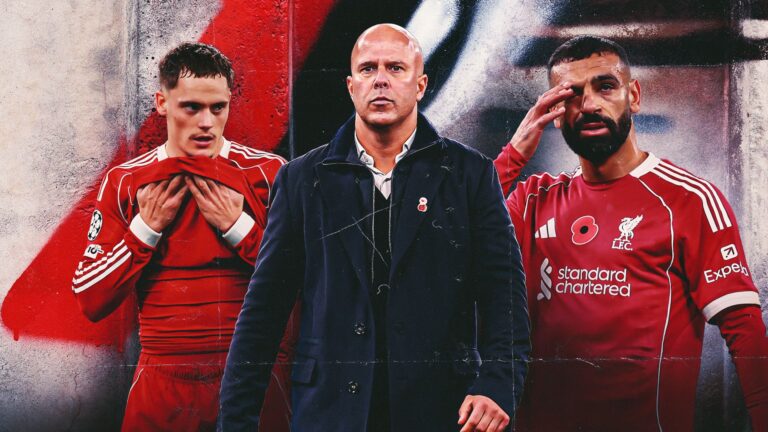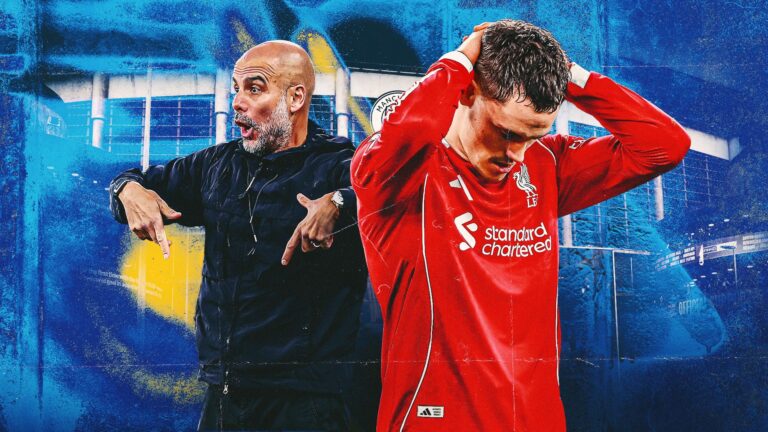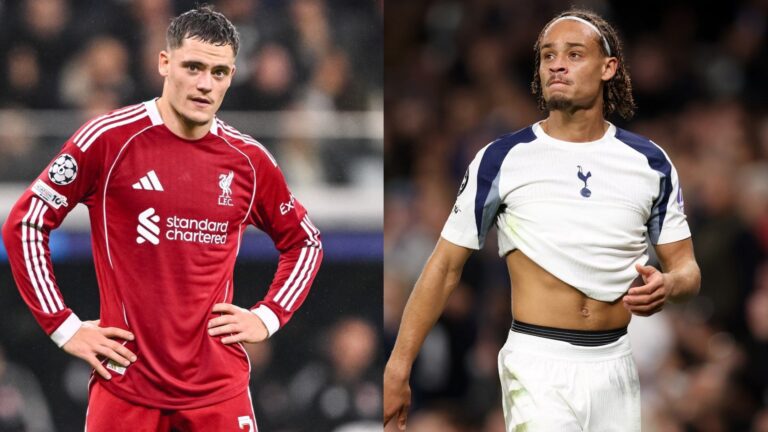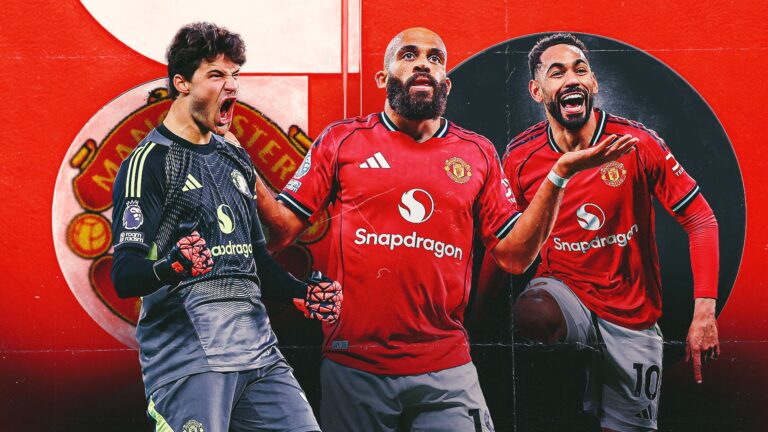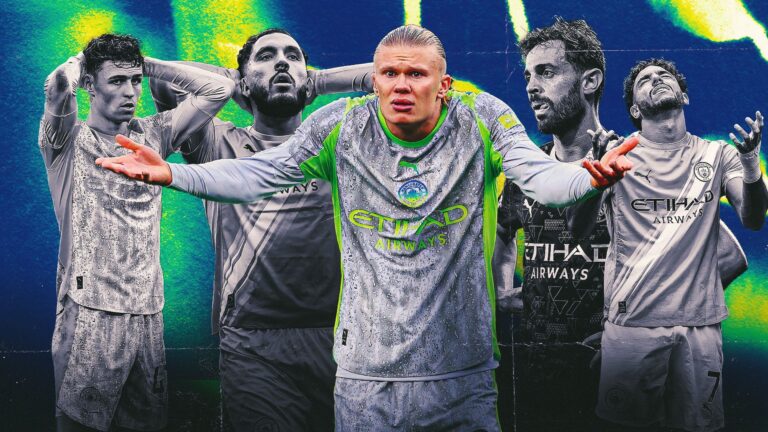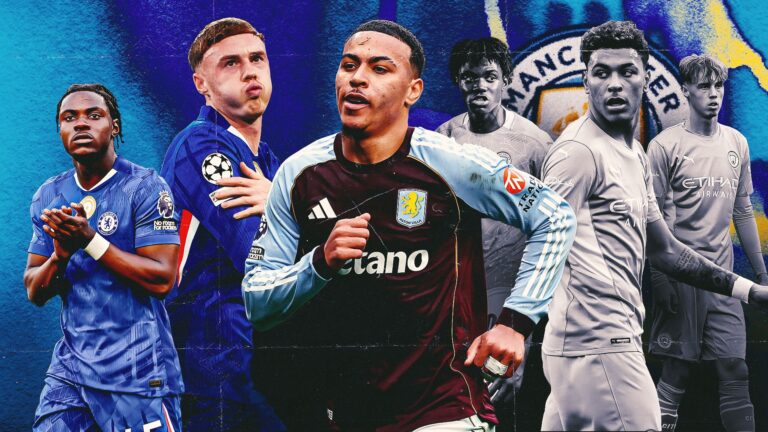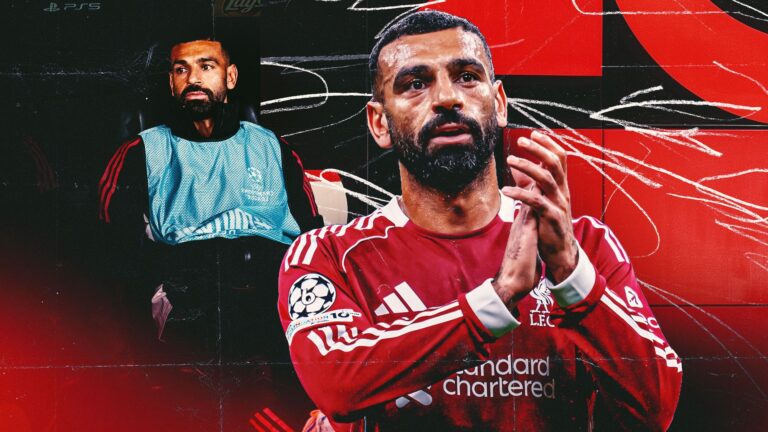






Unlocking Manchester United’s Midfield Potential with Elliot Anderson
In an era where Elliot Anderson is emerging as a transformative talent, Manchester United must prioritize bolstering their core to reclaim elite status in both the Premier League and European competitions. Currently, Ruben Amorim’s squad relies on makeshift arrangements in the midfield, with players like Bruno Fernandes and Casemiro stepping up admirably yet showing signs of limitations due to age and career stages. This analysis explores how acquiring Anderson could fill these gaps, drawing parallels to impactful stars like Declan Rice and setting the stage for sustained success.
Current Midfield Challenges for Manchester United
Despite recent efforts, Manchester United’s lineup lacks a dependable, elite-level midfield foundation essential for challenging at the top. Amorim has leaned on Fernandes in a deeper role alongside Casemiro, who has defied expectations with strong form. However, both athletes carry underlying concerns that affect long-term reliability.
Aging Profiles and Contract Uncertainties
Fernandes, now 31, faces questions about his future, including potential moves to leagues like Saudi Arabia, even after turning down offers from Al-Hilal. Similarly, Casemiro, approaching 34, is experiencing a resurgence but has a contract expiring soon, with only an option for extension. These elements highlight the need for strategic foresight rather than temporary fixes in the engine room.
The Rise of Elliot Anderson as a Long-Term Solution
It’s evident that Manchester United requires a high-caliber playmaker to steer the team forward, and Elliot Anderson stands out as the ideal candidate. This young star not only promises to elevate the Red Devils but also represents the next generation for England’s national squad.
Anderson’s Key Role in Nottingham Forest’s Success
Anderson proved instrumental in Nottingham Forest’s standout 2024-25 season, helping them secure seventh place in the Premier League during their return to the elite division, just missing Champions League qualification and advancing to the FA Cup semifinals. Even amid Forest’s recent struggles with managerial changes, Anderson has remained a standout performer, outshining peers in the league with his consistent excellence.
Dominating Statistics and Versatile Skills
When evaluating ideal midfield traits, Anderson frequently tops the charts, showcasing unparalleled proficiency in ball distribution and control. Data from sources like FBref positions him at the forefront among Premier League midfielders for metrics such as total passes, successful completions, forward-thinking passes, entries into the attacking zone, and precise short-range efforts.
Exceptional Passing Metrics and On-Ball Prowess
Anderson boasts the longest average pass distance among his positional peers and leads in progressive passing metrics, ranking 20th league-wide in a category typically led by goalkeepers. Compared to others, he surpasses Fernandes by 447 meters in progressive distance, Xhaka by 986 meters, and Rice by 1,049 meters. Beyond passing, he records the highest number of touches and recoveries, underlining his command on the pitch.
Expert Endorsements and On-Field Highlights
Former stars like Ashley Young praise Anderson’s all-around capabilities, noting his defensive solidity, attacking intent, and ability to deliver game-changing passes while securing possessions. Examples include his precise assist for Chris Wood at the season’s start and his contributions in England’s dominant wins, such as against Serbia, where he remained unbeatable in dribbles and set up key plays.
Anderson’s Impact on England and Club Level
Anderson’s knack for transitioning from defense to offense has been a highlight for England, allowing him to bypass defenders effortlessly. Teammates like Dan Burn commend his physical presence and composure, while Thomas Tuchel highlighted his mobility and defensive enthusiasm after his debut. This has fostered strong partnerships, notably with Rice, enhancing team dynamics.
Adapting to Various Tactical Systems
Anderson’s flexibility has enabled him to thrive under different coaches at Forest, shifting from Nuno Espirito Santo’s counter-attacks to Ange Postecoglou’s structured approach and Sean Dyche’s responsive style. Previously, under Eddie Howe at Newcastle, he featured in advanced positions before his transfer, which helped alleviate financial pressures for the club.
Assessing the Transfer Value and Precedents
With Forest eyeing a hefty fee of £100m to £120m for Anderson, his market value aligns with recent big-money moves for midfield talents. This is comparable to Arsenal’s acquisition of Rice or Chelsea’s deal for Caicedo, both of whom have driven their teams’ successes. At 23, Anderson’s trajectory suggests he could mirror their influence at United.
Strategic Fit for Succession Planning
His multi-role capability makes him perfect for United’s future blueprint, potentially replacing Casemiro initially and later succeeding Fernandes. Coaches and analysts agree on his upward momentum and mental resilience, as noted by Postecoglou and Dyche, emphasizing his professionalism and positive demeanor.
Prioritizing Character in Squad Building
United’s focus on players with strong attitudes, post past issues, makes Anderson an even more appealing choice. Recent events, like Amorim’s feedback to teammates, underscore the importance of a harmonious environment, and Anderson’s praised traits fit this mold perfectly.
Historical Parallels and Final Thoughts
Manchester United’s history of securing game-changers from Forest, such as Roy Keane, sets a precedent for this pursuit. A record-breaking fee for Anderson could be justified if it brings an England standout capable of revolutionizing the midfield, much like Rice or Caicedo have elsewhere.
Who is Elliot Anderson?
Elliot Anderson is a promising young midfielder currently shining at Newcastle United, and he’s quickly becoming one of England’s most exciting talents. Born in 2002 in Whitley Bay, England, Anderson has progressed rapidly through the ranks, making his Premier League debut at just 18 years old. His versatility as a central or defensive midfielder, combined with his ability to control the tempo of a game, has drawn comparisons to established stars like Declan Rice. For Manchester United fans looking to bolster their squad, Anderson represents a smart, long-term investment in midfield talent that could transform the team’s dynamics.
Anderson’s journey began at Newcastle’s academy, where he honed his skills in possession, tackling, and vision. By the 2023-2024 season, he was a regular starter, contributing to Newcastle’s push for European spots with his energetic play and precise passing. Key attributes include his high work rate, averaging around 2.5 tackles and 85% pass accuracy per game, making him a reliable option in high-pressure situations. As an England youth international, he’s already caught the eye of senior team selectors, positioning him as a rising star in English football.
Why Manchester United Needs a Midfield Overhaul
Manchester United’s midfield has been a weak link in recent seasons, struggling with inconsistency and a lack of control in crucial matches. With players like Casemiro showing signs of age and others like Scott McTominay lacking the creativity needed for a title challenge, the team risks falling further behind rivals like Manchester City and Arsenal. Prioritizing a transfer target like Elliot Anderson could address these gaps by injecting youth, energy, and tactical intelligence into the heart of the pitch.
A key issue for United has been defensive vulnerability in midfield, where opponents often exploit gaps during transitions. Anderson’s profile fits perfectly here-he’s adept at breaking up play and initiating attacks, much like how Declan Rice stabilized West Ham before his move to Arsenal. By targeting Anderson, Manchester United could build a more balanced squad, reducing the reliance on ageing stars and fostering a pathway for sustained success in the Premier League.
Current Midfield Challenges at Manchester United
- Inconsistency in performances: Midfielders have failed to dominate games, with United conceding an average of 1.8 goals per match from midfield errors last season.
- Lack of progression: Players over 30 make up a large portion of the squad, limiting the team’s ability to press high and maintain intensity.
- Tactical mismatches: Under managers like Erik ten Hag, the need for a player who combines defensive solidity with forward-thinking passes has become evident, an area where Anderson excels.
The Declan Rice Comparison
When we talk about Declan Rice’s impact at Arsenal, it’s all about how he elevated their midfield from good to great. Rice brought defensive steel, improved build-up play, and leadership that helped Arsenal challenge for the title. Elliot Anderson shares similar traits-both players are English, under 25, and known for their composure under pressure. Anderson could deliver a Declan Rice-like impact by providing Manchester United with a midfielder who not only shields the defense but also drives the team forward with incisive passes and smart positioning.
Rice’s success stemmed from his ability to win duels (averaging 2.9 per game) and contribute to clean sheets, and Anderson is on a similar path. In his breakout season, Anderson recorded comparable stats, including 1.5 key passes per game and a knack for long-range distribution. Imagine Anderson slotting into United’s lineup alongside Bruno Fernandes; he’d add the balance that Rice provides to Arsenal, turning draws into wins through better midfield control.
Similarities in Playing Style
- Defensive prowess: Both players excel in intercepting passes and winning the ball back quickly, with Anderson mirroring Rice’s 70% duel win rate.
- Versatility: Like Rice, Anderson can adapt to various roles, from a deep-lying playmaker to a box-to-box enforcer, making him ideal for United’s fluid tactics.
- Future potential: At 22, Anderson has room to grow, much like Rice did, potentially becoming a £100 million asset with the right development.
Potential Impact on Manchester United’s Midfield
- Enhanced team performance: Anderson’s addition could boost United’s possession stats by 10%, leading to more scoring opportunities and fewer counter-attacks against.
- Youth infusion: Pairing him with existing talents like Kobbie Mainoo would create a dynamic midfield duo, fostering a Declan Rice-like cultural shift toward a more resilient and attacking style.
- Transfer value: Securing him now, before his stock rises further, could be a cost-effective move compared to the £105 million spent on Rice.
Benefits of Signing Elliot Anderson
Signing Elliot Anderson as a key transfer target offers Manchester United numerous advantages that align with their rebuild strategy. First off, he’s a homegrown English talent, which means he fits seamlessly into Premier League regulations and could help with homegrown quotas for European competitions. His energy and tactical awareness would complement United’s attacking players, allowing for quicker transitions and more controlled possession.
From a financial perspective, Anderson is likely available for a fraction of what top midfielders cost, potentially in the £40-50 million range, making him a savvy investment. Plus, his familiarity with the Premier League reduces adaptation risks, ensuring he hits the ground running. Let’s not forget the excitement factor-with Anderson, fans could see a fresh, Declan Rice-like figure emerging as a club legend.
Key Pros of the Transfer
- Cost-effectiveness: Compared to high-profile signings, Anderson provides high value for money, freeing up budget for other areas like defense or attack.
- Long-term stability: At a young age, he offers four to five years of prime performance, unlike older targets who might fade quickly.
- Market appeal: Bringing in a rising England talent boosts United’s brand and attracts more fans searching for “Manchester United transfer news” and “emerging midfield stars.”
Challenges in Securing the Transfer
While the idea of Elliot Anderson joining Manchester United sounds ideal, there are hurdles to navigate. Newcastle United, his current club, is known for holding onto their prized assets, especially with their Saudi-backed ownership pushing for ambitions in the top four. Negotiations could drag on, particularly if Newcastle demands a premium price after Anderson’s impressive displays.
Additionally, competition from other clubs like Liverpool or Tottenham might complicate things, as they too seek Declan Rice-like talents. Manchester United would need to act decisively in the transfer window to avoid missing out.
Potential Obstacles
- Contract situation: Anderson’s deal with Newcastle runs until 2026, giving them leverage in talks and potentially increasing the transfer fee.
- Rival interest: Clubs like Arsenal, who succeeded with Rice, may also prioritize similar profiles, intensifying the race.
- Integration risks: Ensuring Anderson adapts to United’s high expectations and playing style will require careful coaching, though his background minimizes this concern.


